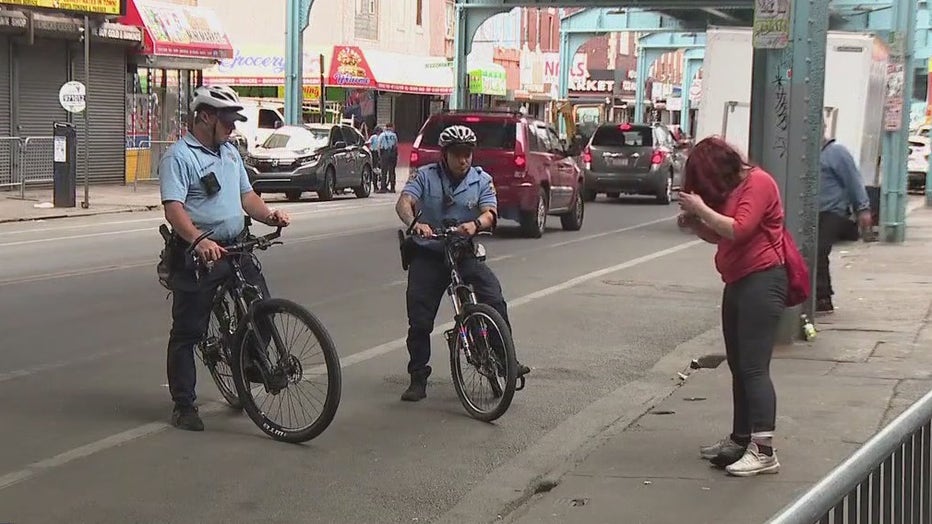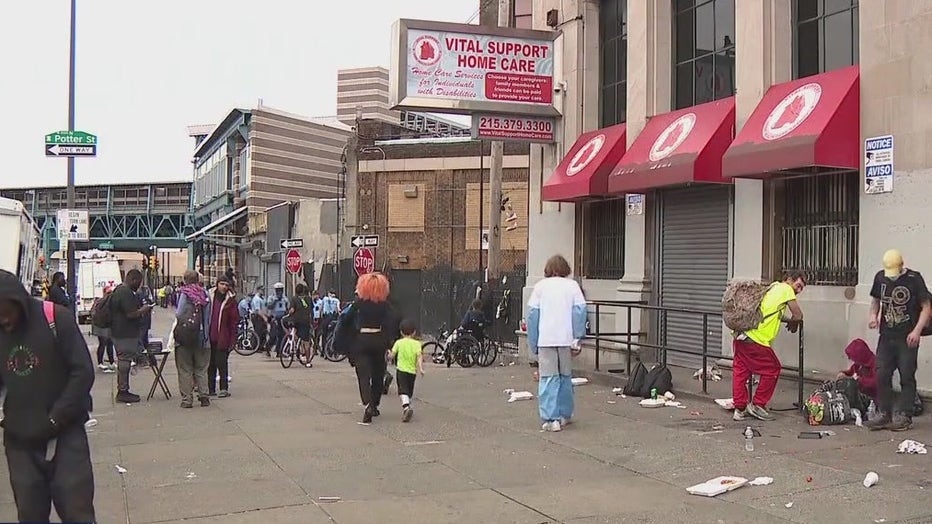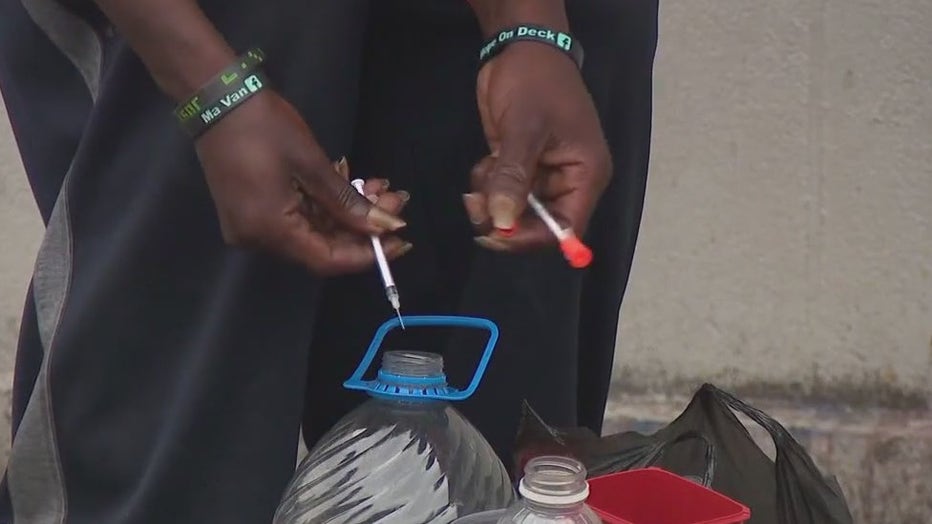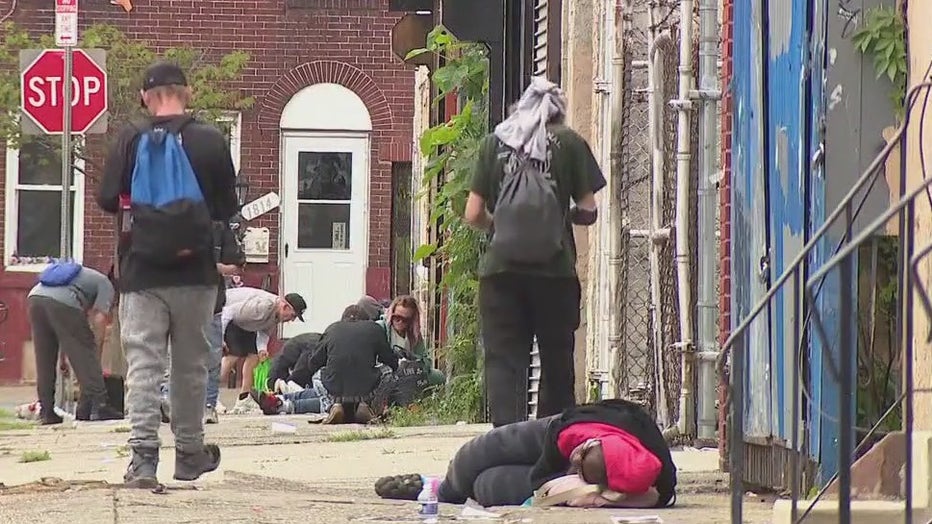Kensington Avenue cleared as encampments move to other blocks
KENSINGTON - Philadelphia police on bikes and in cruisers are moving along Kensington Avenue as they work to hold the block after a homeless encampment is removed from the area.
In the place of the encampment along the 3100 block of Kensington Avenue, barricades stand in front of open businesses and pedestrians are on sidewalks.
Nur Hossian has sold clothing and jewelry on the block since 2007. He said, "I hope it stays like this. It’s good for business."

Bike cops keep loiterers moving as traffic flows while some are overjoyed. Anna Watson, of Port Richmond, said, "It’s beautiful. I’m shocked. I’m very, very excited and shocked so thank you city! Hallelujah!"
But around the corner on Allegheny Avenue, little has changed. A church group has come for its twice weekly feeding. Bernice Black is from the Holy Temple of Deliverance in Germantown. She said, "Preparations should have been made for the people. They should have had a place for them to go. They just turned the corner."

Street drugs are openly used and many, pushed from the encampment, have moved to side streets. Serenity is a long-time resident of the area. She said, "It’s the same thing when they did the tent cities. They’ll kick us out and we’ll just migrate to another block."

A woman, in her 40’s from Delaware County, wants to go home. Jacqueline Connell turned to the FOX 29 camera and said, "I’m in Kensington. I miss you guys I want to see you guys. I want to get clean and sober. I want to get help and I love you guys so very much."

And for those with no place to go, they must keep moving. Roz Pichardo leads Operation Save Our City, a not-for-profit battling homelessness and drug abuse. She said, "Police are moving people or asking people to move along. When they ask for outreach workers, they [police] say, ‘We don’t know you have to move along.’"


